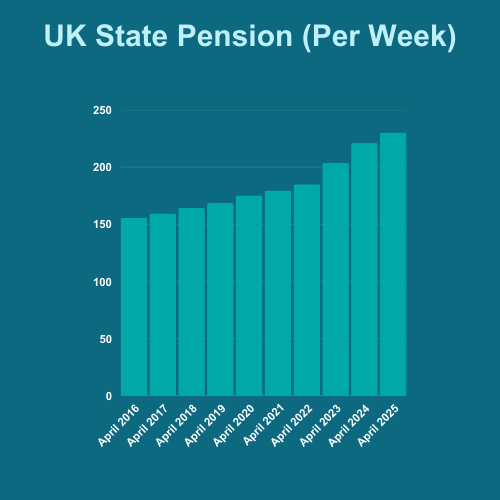
Thinking of Retiring to Spain from the UK? Here’s What You Need to Know First
Retire to Spain from UK
Spain has long been one of the most popular retirement destinations for UK citizens – and for good reason.
Sunshine, great food, a relaxed pace of life, and lower living costs continue to draw retirees southwards.
But retiring abroad isn’t just about finding a nice view.
There are important financial, legal, and lifestyle decisions to consider.
This guide will walk you through everything you need to know if you’re planning to retire to Spain from the UK.
From visas and pensions to healthcare and tax – it’s all covered below.
Can UK citizens still retire to Spain after Brexit?
Yes, but it’s no longer as straightforward as before.
Since Brexit, UK citizens are now considered “third-country nationals” in Spain.
That means you can no longer simply move there and stay indefinitely.
To retire in Spain, you’ll need to apply for the non-lucrative visa.
This allows you to live in Spain as a retiree, provided you can support yourself financially without working.
You’ll need to show:
- Main applicant – €28,800 per year
- Each dependent – €7,200 per year
💷 Proof of sufficient income (pension income, savings, or investment income)
👨🏼⚕ Private health insurance
🦹♀️ No criminal record
🛂 A valid UK passport with at least one year remaining
Once approved, the visa is valid for one year and can be renewed for two years at a time.
After five years, you can apply for permanent residency.
Cost of living in Spain vs the UK
One of the big attractions of retiring to Spain is the lower cost of living.
While some coastal or tourist hotspots can be pricey, many parts of Spain offer good value.
Think €2 coffees, affordable groceries, and much lower council tax equivalents (IBI).
Typical monthly costs for a couple in a mid-sized town:
- Rent: €700–€1,200 (depending on location)
- Utilities: €100–€150
- Groceries: €300–€400
- Private health insurance: €100–€200
Of course, lifestyle choices will affect how far your pension or savings go, but many British retirees find they can live comfortably on less than they would need in the UK.
Paying tax in Spain as a UK retiree
If you spend more than 183 days a year in Spain, you’ll generally be considered tax resident there.
This means that you’ll pay Spanish income tax on your worldwide income, including:
- UK State Pension
- Private or workplace pensions
- Rental income
- Investment income
Spain’s income tax rates are progressive, ranging from 19% to 47%, depending on income levels and the region in which you live.
The UK and Spain have a double tax treaty, so you won’t be taxed twice on the same income.
But this doesn’t mean you won’t be taxed at all.
It’s essential to get advice before you move, especially if you have significant pensions, ISAs, or investment portfolios, to make sure you structure your income efficiently under Spanish tax rules.
⚠️ Unlike the UK, where the tax year runs from 6th April to 5th April, in Spain it runs from 1st January to 31st December.
Can you still receive your UK pension in Spain?
Yes. The UK State Pension can be paid into your Spanish bank account or a UK one.
You’ll continue to receive annual increases (the “triple lock”) in Spain because it’s covered by the UK’s social security arrangements with the EU.

If you have private pensions or SIPPs, these can also be accessed from Spain, but there will be currency risk, tax implications, and paperwork to consider.
In some cases, consolidating UK pensions into an international SIPP or restructuring investments for tax efficiency can make a big difference.
It’s worth seeking advice before drawing pension benefits.
What about ISAs, Premium Bonds, and UK savings?
Once you become a Spanish tax resident:
- ISAs lose their tax-free status. Income and gains are taxable in Spain, even if they remain tax-free in the UK.
- Premium Bonds are permitted, but winnings are taxable.
- Capital gains and interest from UK savings/investments must be reported.
The Spanish tax system can be complex, with different rules for various income types (and regional variations too).
A tax-efficient structure in the UK may not be tax-efficient in Spain.
🔗 Expat ISA Rules: What Can Be Done With an ISA When You Move Abroad?
Accessing healthcare in Spain as a UK retiree
Spain has an excellent healthcare system, but access for UK retirees depends on your situation.
If you’re receiving a UK State Pension, you can apply for an S1 certificate from the NHS Overseas Healthcare Service.
This entitles you to state healthcare in Spain, paid for by the UK.
Once registered with the S1 and your local Spanish health centre, you’ll have access to public healthcare on the same basis as Spanish residents.
If you don’t qualify for the S1 (e.g. early retirees), you’ll need private health insurance to cover you, at least until you become eligible for state healthcare.

Thinking of Retiring Overseas?
Download my FREE checklist
Make your move stress‑free with our free Retiring Overseas Checklist. Clear steps, no fluff – just what you need to plan with confidence.
Buying or renting property in Spain
UK citizens can still buy property in Spain with no restrictions.
Spain has a well-established property market, and many retirees choose to buy their dream home outright using equity from UK property sales or pension lump sums.
However, renting for the first 6–12 months is often a smart move.
It gives you time to settle in, explore different areas, and make a more informed decision.
Don’t forget:
- Property taxes and local fees vary by region.
- Inheritance laws in Spain differ from the UK and may affect how you pass on property.
- Currency fluctuations can impact affordability.
Estate planning and inheritance tax
Spain has its own inheritance and succession tax (ISD), which varies by region, relationship to the deceased, and asset type.
Unlike the UK, there’s no automatic spouse exemption, and each beneficiary may face tax depending on their personal circumstances.
You’ll also need to consider:
- Whether your UK will is valid in Spain
- Whether you should draft a Spanish will
- Forced heirship rules that may apply unless you opt for UK law (under Brussels IV)
🔗 EU Succession Regulation: What is it and how does it affect UK expats?
Case Study: Martin & Anna’s Move to Granada
Martin (61) is a UK citizen. Anna (58) is a Spanish citizen.
After 20 years abroad working in Asia and the Middle East, Martin finished his final international assignment in the UK while Anna taught at an international school.
They’ve now decided to retire to Anna’s home country and settle in Granada, a city they fell in love with years ago.
They are financially secure, having built up a solid retirement portfolio.
Martin has a UK defined benefit pension due to start at 65, along with a sizable SIPP.
Anna has a modest Spanish pension and personal investments.
They have two children:
- One at university in the Netherlands
- One just starting work in London
They want to help both children onto the UK property ladder over the next 5–10 years, while making sure their own retirement income is stable and tax-efficient in Spain.
We worked together to:
- Model different pension drawdown strategies (e.g. deferring Martin’s SIPP, early drawdown, or taking an annuity)
- Analyse Spanish tax treatment of UK pensions, ISAs and their joint investment account
- Restructure UK holdings into Spanish-compliant investments, which allowed tax deferral and simplified reporting
- Set up a plan to gift funds to their children in the UK in a tax-efficient way, without jeopardising their own retirement
- Draft wills in both countries, ensuring that UK law applies to their Spanish assets under Brussels IV
They now have a clear roadmap for the next 20 years, with flexibility to support their children, fund their retirement lifestyle, and leave a lasting legacy across two countries.
Considering Other Countries Before You Retire?
If you are thinking about retiring to Spain from the UK, it can also be helpful to understand how other countries approach residency rules, taxation, pensions, and long-term financial planning – particularly if your plans change over time.
Many British retirees compare Spain with destinations such as Greece, where lifestyle benefits are often balanced against different tax residency rules and pension treatment. Others explore options outside Europe altogether, including Dubai and Saudi Arabia, both of which offer very different financial and tax environments for British expats and retirees.
For those seeking a European base with lower living costs while remaining well connected to the UK, Poland has also become an increasingly popular option.
Regardless of where you choose to retire, financial planning rarely stops at national borders. UK tax residency, pension access, investment structuring, and inheritance planning often require a cross-border financial advice approach – particularly if you may move countries more than once or plan to return to the UK later in life.
For a broader overview of the key issues British retirees face overseas, you may also find it useful to explore this guide to retiring abroad and the common financial considerations involved.
❓ FAQs: Retire to Spain from UK – financial planning essentials
1. Will I pay tax in Spain on my UK pension?
Yes. If you’re a tax resident in Spain, your UK pension income is taxable there. The UK/Spain tax treaty prevents double taxation, but tax is still payable in Spain.
2. Can I keep my UK ISA if I move to Spain?
You can keep it, but once you’re a Spanish tax resident, ISAs lose their tax-free status. Income and gains become reportable and taxable under Spanish rules.
3. Should I transfer my UK pension to a QROPS if I move to Spain?
No. As a result of the rule change in October 2024, you will be subject to a 25% Overseas Transfer Charge if you transfer your pension to a QROPS in a country that you are not resident in.
4. Are Spanish-compliant bonds a good idea?
They can be. These investment structures offer tax deferral and simpler reporting in Spain. They’re often used by UK retirees with larger portfolios who want to manage income flows and reduce annual tax exposure.
5. Do I need to declare my UK bank accounts in Spain?
Yes. If you’re Spanish tax resident, you must declare overseas accounts and assets worth more than €50,000 using the Modelo 720 form.
6. Will I be taxed in the UK after I move to Spain?
It depends. If you remain UK tax resident (e.g. split year), you may still be liable. Once you’re non-resident, most income is only taxed in Spain – but things like UK rental income and capital gains on UK property remain taxable in the UK.
7. What’s the best way to help my children buy property in the UK from Spain?
This depends on how you structure your assets. Gifting from a UK bank account may be simpler. But if you’re Spanish resident, large gifts can trigger Spanish gift tax. A cross-border gifting strategy should consider both UK and Spanish rules.
8. Can I access my UK pension lump sum tax-free in Spain?
No. While you can take 25% of your pension as a tax-free lump sum in the UK, this benefit is not recognised in Spain, and Spanish tax will apply to it.
9. Do I still need a UK will?
Yes. You’ll need a UK will for your UK assets, and a Spanish will for assets located in Spain. You may structure your Spanish will to state that you wish UK succession law to apply (under EU regulation Brussels IV).
10. When should I speak to a financial adviser?
Yes. Ideally 12–18 months before your move. That gives you time to restructure assets, review pension strategy, update estate planning, and avoid costly mistakes during the transition.
Need help planning your retirement to Spain?
If you’re thinking about how to retire to Spain from the UK, I can help you plan the transition.
As a UK Chartered Financial Planner, I specialise in helping British expats prepare for retirement abroad, including pension advice, investment management and cross-border estate planning.
If you’d like to chat through your plans or get a second opinion, feel free to schedule an introductory call.

Talk to an Expert
Retiring to Spain from the UK is a dream for many people — but turning that dream into a secure, tax-efficient reality involves far more than just sunshine and property searches. Visas, healthcare, tax residency, pensions, currency risk and Inheritance Tax all need to work together.
I’m Ross Naylor, a UK-qualified Chartered Financial Planner and Pension Transfer Specialist with nearly 30 years’ experience helping British expats in Spain and across Europe plan their move, structure pensions and investments, and understand the long-term financial implications of living abroad.
I firmly believe your location in the world should never be a barrier to expert, impartial and transparent financial advice you can trust.
Whether you’re unsure how your UK pensions will be taxed in Spain, how to use the UK–Spain tax treaty, what to do with ISAs and UK property, how currency affects your income, or how to align your estate and IHT planning with a life in Spain, I’ll help you build a clear, realistic retirement plan before you make the move.
Book a confidential consultation

